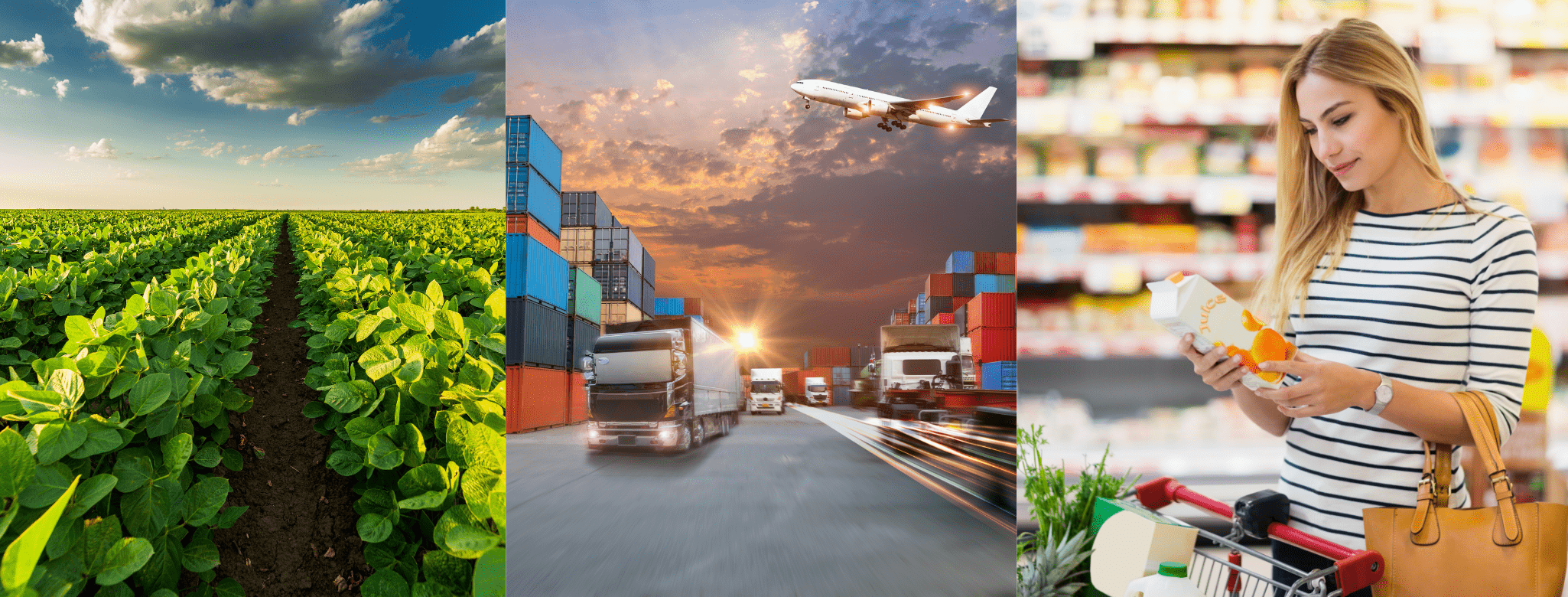On 14 May the Australian AgriTech Association hosted a virtual panel titled Sustainable supply chains: creating trust & resilience from farm to table. The panel was facilitated by Sarah Nolet from AgThentic, and made up of Lachlan Monsborough from Rabobank, Olympia Yarger of Goterra, and Jessica Vieira from Apeel Sciences. The panel covered a range of issues and questions around the sustainability of food supply chains, including how to incentivise waste reduction, what quantifiable factors can be used to accurately determine sustainability at the farm gate level, and how can we reduce our reliance on plastic packaging for food products?
Creating sustainable, resilient, and trusted value chains from farm to table is increasingly important, yet also ever-more challenging to achieve. The session identified the challenges of creating a sustainable circular economy and reducing waste across the supply chain, with a focus on how to create and incentivise changes in the behaviour of consumers, producers, and retailers.
Some of the challenges identified by the panel were:
- Who pays for sustainable change? Producers are unlikely to be incentivised unless it is going to increase their income in the long-term. Not all consumers will choose to pay more for a more sustainably produced product. Finally, not all who would make this choice can afford to.
- Plastic packaging for fresh produce is a problem because it often serves multiple purposes like product life extension, protection and freshness, so it cannot be dispensed with completely, yet it has significantly negative environmental impacts.
- Food waste is one of the biggest sources of waste in the supply chain – whether it is in the home, restaurants or supermarkets. It is therefore one of the most obvious areas where behavioural change is needed.
So how do you create these changes? The panel presented some solutions:
- Education, especially of consumers has the ability to reduce waste by ensuring there is information available on the sustainability and carbon footprint of the product. This prompts one Will they read it? Not always, but studies have shown that just having the info available, whether on the product or via QR code changed consumer behaviour to be more focused on sustainability.
- Refrigerants are environmental hotspots, but there are opportunities to reduce emissions by reducing the distances fresh produce needs to travel and switching to more sustainable transport methods and fuel products.
- The Government could introduce subsidies for producers and retailers that incentivise reduction in waste and more sustainable practices across the supply chain. For example implementing hardware that reduces waste, such as a system to convert food waste into a more useful by-product and avoid landfill.
To be more sustainable we need to move to a more circular food economy, and while none of these solutions is perfect and we have a long way to go in reducing food waste and improving sustainability across the supply chain there are levers, for change available. Businesses and producers from start-ups to multi-nationals are beginning to take a greener look at business practices, noting that if you are a brand that actively changes to a sustainable approach you can leverage this to attract customers who want to act more sustainably while improving your brand image. A greater focus on environmental friendliness and sustainability is also growing among consumers, especially in the younger generation, as education programs around the need to reduce waste become more ingrained in our society outside formal education as well as within it.
The panel concluded with the message that there are ways to reduce our food waste and carbon footprints for better food and environmental security, as long as we are prepared to be the drivers of change, not only in talk, but in action.
